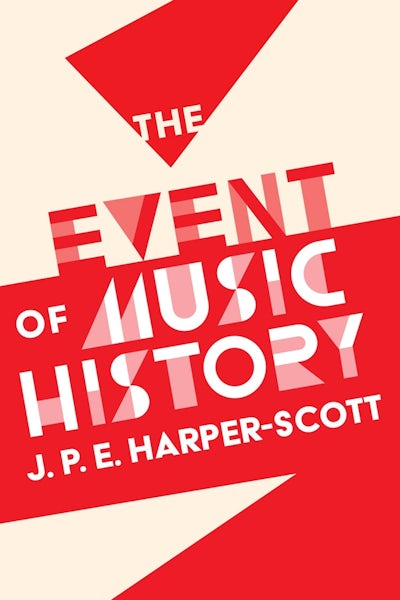
The Event of Music History
- Description
- Contents
- Author
Brings musicology to the cutting edge of debates in the postmodern philosophy of history.
This book presents a new theory of how to write music history, and offers an exemplar of this new theory in action, in a series of four chapter-length reflexions on Beethoven's heroic style. The first book-length theory of music history since Carl Dahlhaus's Foundations of Music History, it brings musicology to the cutting edge of debates in the postmodern philosophy of history.
While the book engages with current thinking, it also goes further than the postmodern critique of history writing to find a new and positive basis for the writing of music history. In so doing the book revisits the philosophy of Alain Badiou: in place of a focus on the facts, the objects of history, whose problematic relation to history writing the theorists have demonstrated, the book proposes a focus instead on the subjects of history, the 'faithful', 'reactive, and 'obscure' responses to an 'Event' (a kind of rapture of ontology which brings the actors involved closer to a truth). It sees musical materials (the styles, techniques, and musical 'language' handed down to composers by history) in a dialectical relationship with the human beings who are music's manifold historical actors.
Engagingly written, this new short theory of music history will be essential reading for scholars and students of the many area studies within music history. It will also attract those of neighbouring disciplines dealing with the philosophy of history or the history of historiography.
This book presents a new theory of how to write music history, and offers an exemplar of this new theory in action, in a series of four chapter-length reflexions on Beethoven's heroic style. The first book-length theory of music history since Carl Dahlhaus's Foundations of Music History, it brings musicology to the cutting edge of debates in the postmodern philosophy of history.
While the book engages with current thinking, it also goes further than the postmodern critique of history writing to find a new and positive basis for the writing of music history. In so doing the book revisits the philosophy of Alain Badiou: in place of a focus on the facts, the objects of history, whose problematic relation to history writing the theorists have demonstrated, the book proposes a focus instead on the subjects of history, the 'faithful', 'reactive, and 'obscure' responses to an 'Event' (a kind of rapture of ontology which brings the actors involved closer to a truth). It sees musical materials (the styles, techniques, and musical 'language' handed down to composers by history) in a dialectical relationship with the human beings who are music's manifold historical actors.
Engagingly written, this new short theory of music history will be essential reading for scholars and students of the many area studies within music history. It will also attract those of neighbouring disciplines dealing with the philosophy of history or the history of historiography.
Introduction
Music history since the fall of the Berlin Wall
What is a subject of music history?
The absolute nothingness of music history
Beethoven and the heroic Thing
Beethoven's emergency brake
Glimpsing Beethoven's truth content through analysis
On a chord in the 'Kreutzer' Sonata
Afterword: Beethoven's faithful, reactive, and obscure music
Bibliography
Index
Music history since the fall of the Berlin Wall
What is a subject of music history?
The absolute nothingness of music history
Beethoven and the heroic Thing
Beethoven's emergency brake
Glimpsing Beethoven's truth content through analysis
On a chord in the 'Kreutzer' Sonata
Afterword: Beethoven's faithful, reactive, and obscure music
Bibliography
Index
Paperback
9781783275991
June 2021
$36.95 / £24.99
Ebook (EPDF)
9781800101166
June 2021
£15.99 / $23.95











